Joni Eareckson Tada speaks with Jemimah Wright about her extraordinary life, and why she still takes God at his word – almost 60 years after a diving accident left her quadriplegic
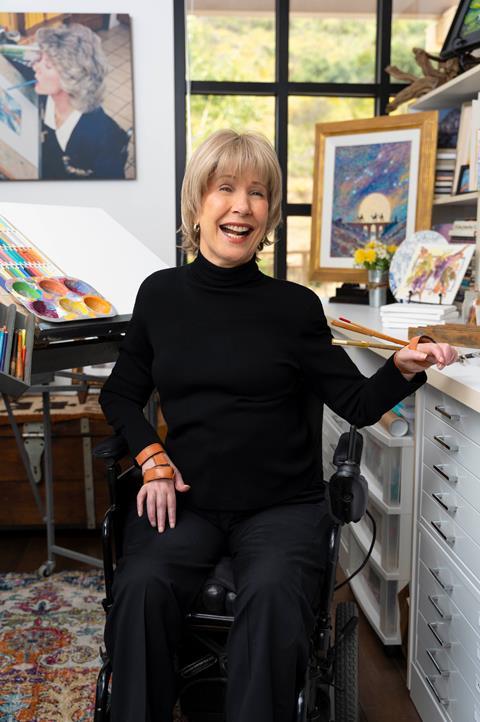
Jemimah Wright (JW): You have been a much-loved columnist with Woman Alive in the past, and readers have missed you. Can you tell us how you are at the moment?
Joni Eareckson Tada (JET): Well, I’m getting older. I’ll be 75 this year. I’ve been in my wheelchair for coming up on 57 years; that’s a long time. As far as I am right now, I think I’m doing pretty good! Of course, I still deal with the chronic pain, which is pretty significant. Last year, I was hospitalised for a total of 40 days because of two different bouts with double pneumonia. My lungs, as a quadriplegic, are very fragile. But even with those limitations, I’m busier than ever. I always ask the Lord: “Please, God, squeeze every little drop of ministry out of this quadriplegic body as best you can.” Because I want to serve him all the way to the end. I have no plans to retire. I’ve got a great husband who takes good care of me, for which I’m extremely grateful.
JW: Many of our readers will know your testimony well, that you’ve been a quadriplegic since your diving accident in 1967. You’ve battled cancer twice, and had Covid as well as pneumonia. In a recent article you said: “Resting in God’s sovereignty come what may is what enables me to have profound unshakable gladness in the face of horrible hardships and jaw biting pain.” Can you share a bit about what it looks like to rest in God’s sovereignty?
JET: There are just some things about suffering that surpass our knowledge. We just don’t understand it. It seems absolutely incongruent with a good God. I’m so grateful for Ephesians 3:18-19, which talks about God giving us the strength to comprehend “the love of Christ that surpasses knowledge”.
So, when there are things about our suffering that we can’t comprehend, we lean on the love of Christ. Jesus died. I mean, he was ripped to shreds, and hung on the cross, like a piece of slaughtered meat left there to drain blood. It was just unthinkable what he went through. And surely, if Christ went through all of that for us, to secure us a home in heaven, and escape from sin, then surely he has good intentions for us in the midst of our suffering? When I rest in God’s sovereignty, I rest in his promises.
I generally have a profound peace that’s absolutely unshakable. It doesn’t make sense how you can be peaceful in the midst of all this, but I am because that peace comes from trusting in his promises, so anxiety and worry dissipate. When you rest in God’s sovereignty you can be relaxed. And there are even some times you can rejoice in suffering.
I lean on one directive from the Old Testament that I go to time and again; in Psalm 62:8, it says simply this: “Trust in the Lord at all times.” Not just times when it’s easy or times that make sense. Trust in the love of Christ when your suffering surpasses your knowledge to comprehend what God’s doing.
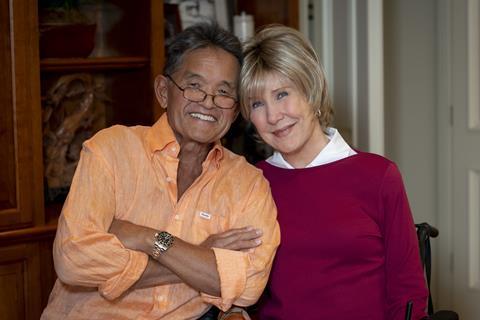
JW: You are an author, a radio host and artist, as well as the founder of Joni and Friends, an organisation which accelerates Christian ministry in the disability community. How did God lead you to be and do all these things?
JET: I simply learned to faithfully steward the sphere of influence that God gave me in the beginning. It was small things like a Bible study for a group of girls at the high school. The more faithful I was in stewarding that sphere of influence, God brought me bigger opportunities, one by one, until my sphere of influence now has become global. It’s not as though I sought it. I never knocked on doors. Instead, God knocked on my heart, and I obeyed.
When I first injured myself, over half a century ago, I didn’t know anybody with a disability. In fact, I wasn’t even comfortable with people who had disabilities. But when, over time, I experienced God’s blessings in my own life I just wanted to pass those blessings on one by one. So I learned to faithfully steward among a few people with disabilities that God gave me to connect with, shortly after my injury. And when I was faithful with that, he brought more opportunities.
you want to know what you believe about God? See how you react the next time you suffer
JW: You have commented in the past that we don’t know what to do with suffering. But you have lived a life of physical suffering. How have you kept yourself from bitterness and self-pity?
JET: Suffering is something that’s always going to teach you about yourself. I mean, you want to know what you believe about God? See how you react the next time you suffer. I have learned that suffering is a textbook that’ll teach you who you really are.
I love to take God at his word. Romans 8:28? I believe it. God’s going to work, even this awful thing, somehow, into a pattern for good in my life and glory for him. When it comes right down to it, you believe God or not. I choose to believe him at every turn. And besides, who wants to be bitter? It’s so destructive.
Hebrews 12:15 says [paraphrased]: “Be careful that none of you fails to respond to the grace that God gives, for if he does, there can very easily spring up with them, him a root of bitterness…that will not only poison his life, but the lives of everyone around him.” Nothing destroys your soul faster than bitterness and self-pity.
And what is the soul worth? The wealth of the whole world, which we know from the parable of the rich young ruler: “what shall it profit a man, if he shall gain the whole world, and lose his own soul?” (Mark 8:36, KJV). Why would we want to destroy our soul with self-pity?
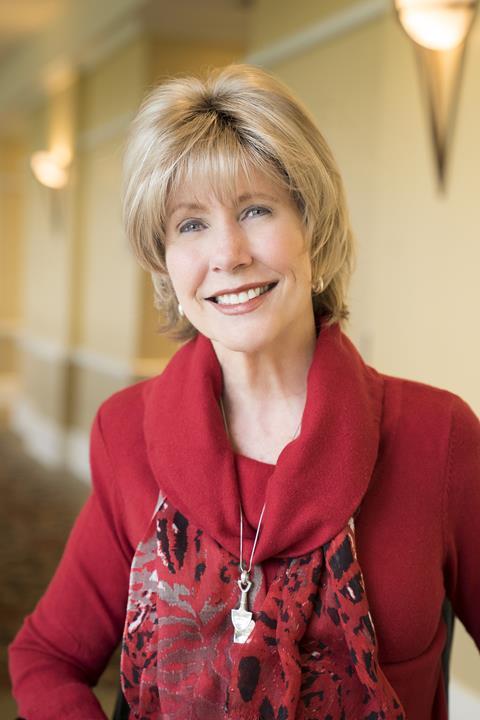
JW: What would you say to someone who is reading this who is facing some kind of debilitating health condition?
JET: If it is making you feel frightened, anxious, depressed, angry – don’t hide it. Go before the Lord. There are times I have said to him, especially in the middle of the night: “Lord, I can’t do this, but for some reason you think that I can, with your grace, so instead of listening to my emotions, I’m gonna listen to your word. And I’m going trust that somehow, some way, you will meet me in the middle of the suffering and you’re going to transform it into a place of hope, and confidence in your word.”
We have been able to change the culture of disability and help people gain a biblical view on it
2 Corinthians 1:8-9 says: “We do not want you to be uninformed…about the troubles we experienced in the province of Asia. We were under great pressure, far beyond our ability to endure, so that we despaired of life itself” (KJV). In other words, Paul was saying: “I’d rather die than go through this.” But I love the next verse: “this happened that we might not rely upon ourselves but on God, who raises the dead”.
When we rely on him, suffering is somehow transformed into something that is a tool that will teach us things we never dreamed possible.
JW: You started Joni and Friends in 1979. Can you tell us a bit about it, and its mission?
JET: After the Joni movie was made (a film about Joni’s accident), I began getting thousands of letters from other disabled people. They were asking questions such as: “What about miraculous healing?” “Why hasn’t God healed me?” “How can I get my church to understand what my challenges are?” I realised: “Oh, my sphere of influence is widening here, and I better steward this well.” And so that’s why I started Joni and Friends. Now, 45 years later, we deliver thousands of wheelchairs to disabled people around the world, and Bibles for their families. We do disability ministry training in churches in developing nations where cerebral palsy is looked upon as a curse. We have been able to change the culture of disability and help people gain a biblical view on it.
We are establishing what we call Joni’s House locations. There are houses in El Salvador, Uganda, Nepal, Peru and we’re just doing the ground breaking on Joni’s house in Serbia. These are places where families can come and get medical help, marriage counselling, Bible studies, wheelchair restoration.
It’s a multidisciplinary approach; we look at the community, then we develop the programme to match that need. Also, we have retreats for families struggling with disability. We’re working with universities, with physical therapy students, nursing students. I’m so proud of our team.
JW: You’ve written 48 books in total – what was the hardest book to write?
JET: I think When God Weeps, because it tackles where the rubber meets the road of our pain. It tackles the question of God’s goodness, in the midst of our pain – and how it is that God allowed it in the first place. After the Fall, what happened?
The book that I really enjoyed writing is a little children’s book that was published in the UK by the Good Book Company, called Awesome, Super Fantastic, Forever Party. I cannot tell you how many people have used that book to explain to their grandmother how to get saved. It’s really a fun book for children, but also for adults, because we’re confused about the gospel.
JW: Can you share anything that God has been speaking to you about recently?
JET: The days are short, the times are evil and the issues facing many Christians are so confusing. There seem to be so many grey areas. We need to go back to the Bible constantly. What does God say about this? The gospel is offensive to most people – we want to woo people as best as we are able, to the side of Jesus Christ. I’m leaning on Psalm 90:12: “Teach us to number our days.” We need wisdom from God for tackling all the very difficult cultural issues that are now facing us these days.
Do you remember reading Joni’s Woman Alive articles? Find out more about Joni and Friends at joniandfriends.org




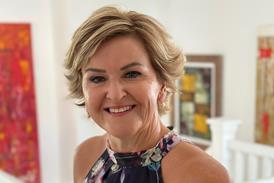
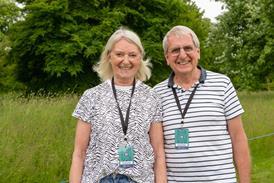


























No comments yet